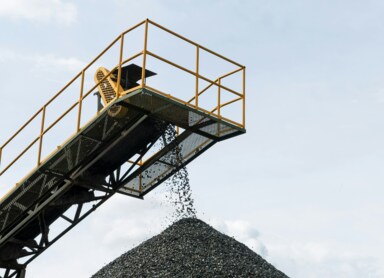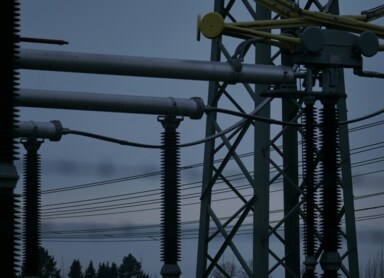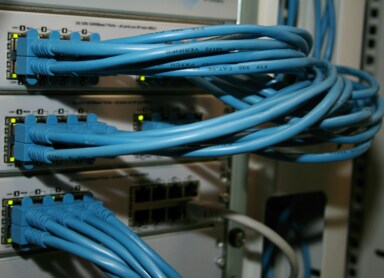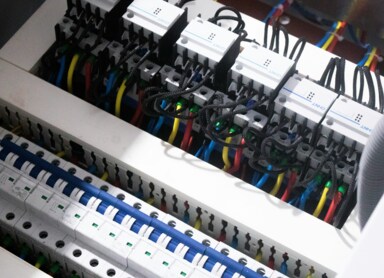Blackout - what is it, how to protect yourself?
A blackout is a dangerous phenomenon that can happen at any time. Blackouts on a massive scale have already happened in the past, so it is worth knowing how to protect yourself for such incidents and how to act then.
Blackout what is it? Explanation of the phenomenon and its causes
Blackout1 is the term used to describe a power outage on a massive scale, for example across an entire city or county. One of the most famous cases in history is the New York event. It occurred on the night of 13-14 July 19772. For several hours the city was plunged into darkness. Chaos reigned on the streets. The cause was a transformer failure caused by a lightning strike. The damage of this incident was valued at $300 million.
A blackout not only has the potential to paralyse daily life, but also to generate huge financial and social costs. Such an event can affect a community for many years after the event itself. To avoid this, after the famous blackout in New York, safeguards and protocols were created to deal with similar incidents.
The blackout phenomenon - what does it mean exactly?
Blackouts can take many forms. From localised power outages affecting individual neighbourhoods or cities, to widespread outages covering entire countries or regions. The duration of a blackout is also variable and can last from a few hours to several weeks. Depending on the scale of the outage and the speed of the technical services' response.
Contrary to appearances, such incidents occur frequently. Here are the main causes of blackouts:
- Failure of power systems - this is the most common reason for blackouts. Damage to transformers, transmission cables and power plant management systems fall into this category.
- Action of natural forces - phenomena such as hurricanes, floods, storms and even solar storms can also send black outs. What does this mean? They can, for example, damage or destroy elements of the energy infrastructure. Wind-broken poles, wires torn off by heavy snow or above-ground system components flooded by floods have already led to power outages many times.
- Human activity - power outages, are also often the result of human error or deliberate action. Cyber attacks on management systems are particularly dangerous as they can be carried out anonymously from anywhere in the world.
- Too much load on the network - in some cases, the cause of power outages is too much energy consumption. The widespread use of air-conditioning equipment or other power-hungry appliances can lead to local blackouts.
Effects of a blackout - consequences for the economy and security
As you can easily guess, the consequences of a power outage affect almost every sphere of life, from households to businesses to key public services:
- Impact on everyday life - power cuts mean no heating, hot water or internet access. This is dangerous especially in the winter months when wet snow can knock down high voltage lines.
- Industry and manufacturing - lack of electricity is a big problem for manufacturing companies. Without electricity, many plants and businesses are unable to operate. On top of this, blackouts can lead to damage to machinery and high financial losses.
- Transport and logistics - blackouts affect road safety. Traffic lights may stop working, timetables will not be in force and safety systems will be rendered useless.
- Public services and critical infrastructure - a power outage can be a serious threat to the life and health of patients in hospitals. Every medical device uses electricity. Also IT and telecommunication systems will stop working without electricity.3
- Public safety and order - a prolonged blackout has repeatedly led to increased crime and civil unrest in the past. The lack of street lighting and alarms increases the risk of burglaries and robberies. Uncertainty and lack of access to basic services can lead to panic and chaos.
Blackout - how do you protect yourself from the effects of an energy emergency?
Although a blackout is unlikely, it is possible. Therefore, it is good to know how to act in such a situation. What not to do and what to have with you.
Always be safe - prepare in advance
If you are worried about prolonged power cuts, you can prepare an emergency kit specifically for such an eventuality. This should include:4
- torches with extra batteries
- a battery-operated radio for receiving messages,
- powerbanks to charge mobile phones,
- and a first aid kit with essentials.
Also prepare food items such as canned food or energy bars, as well as clean water to drink. Don't forget extra clothing and means of keeping warm, such as thermal blankets. As electronic payments may not work, prepare cash as well.
How to behave during a blackout
Whatever happens, stay calm. Do not use open flames, use torches for lighting. Listen to local authority announcements on the radio, and if you can, follow their profiles on the internet. If you are responsible for children, elderly or disabled people, take care of their needs.
If it is not necessary, do not go outside, especially after dark. Don't open appliances such as the freezer and fridge unnecessarily. Despite the lack of electricity, they are able to maintain a low temperature for some time. Opening the doors will speed up the process of food spoilage. If announcements are broadcast, do not ignore their content. Always listen to the emergency service representatives.
Blackout risk management strategies - practical tips and procedures
To minimise the risk of a blackout and its consequences, management strategies have been developed for such cases. Here are some of these solutions:
- Regular inspections of electrical installations - these help to detect possible problems or faults that could lead to a blackout.
- Battery-powered alarm systems - this solution will ensure that security systems function even when the power is out.
- Exercises on evacuation procedures - in industrial plants, office buildings, regular drills help to safely exit the building in the event of a sudden blackout. Such exercises can have several scenarios, allowing you to prepare for different situations.
- Backup energy sources - additional energy sources, such as generator or solar-powered generators, ensure that critical systems continue to operate.
- Planning and risk analysis - every government institution and workplace should have a detailed blackout plan. This should include procedures and guidance on how to proceed at each stage of the operation.
Blekaut - what does it mean? A few words at the end
A blackout can bring serious challenges for all of us, both in our daily lives and at work. If you have questions about protecting yourself against a blackout or need specialist support in this area, please do not hesitate to contact us. We encourage you to visit our website, at https://reo.pl/pl/kontakt, where you will find more information and contact details. Our team of experts is on hand to help you prepare for any eventuality related to power cuts.
1. https://www.infor.pl/prawo/encyklopedia-prawa/b/5624008,Blackout.html
2. https://en.wikipedia.org/wiki/New_York_City_blackout_of_1977
3. https://businessinsider.com.pl/gospodarka/polska-energetyka-wystawiona-na-atak-zlamanie-tego-systemu-to-pestka-dla-hakerow/ddb5mks
4. https://energetyka24.com/elektroenergetyka/jak-przygotowac-sie-na-blackout-poradnik-energetyka24-komentarz






